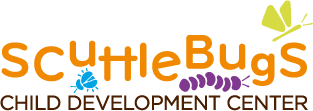I want to preface this blog by stating that not only is teaching one of the oldest professions on the planet but education (as all industries and businesses) has evolved and benefitted from our collective learning as a human race over time and continues to do so. This piece assesses the pros and cons of Play Based and Academic (Traditional) programs in a similar vein to my previous comparative/contrastive piece on the Reggio Emilia and Montessori approaches to early childhood education (ECE). Essentially, I am reviewing the two main foundations integral to child development: free play and choice vs traditional structured work.
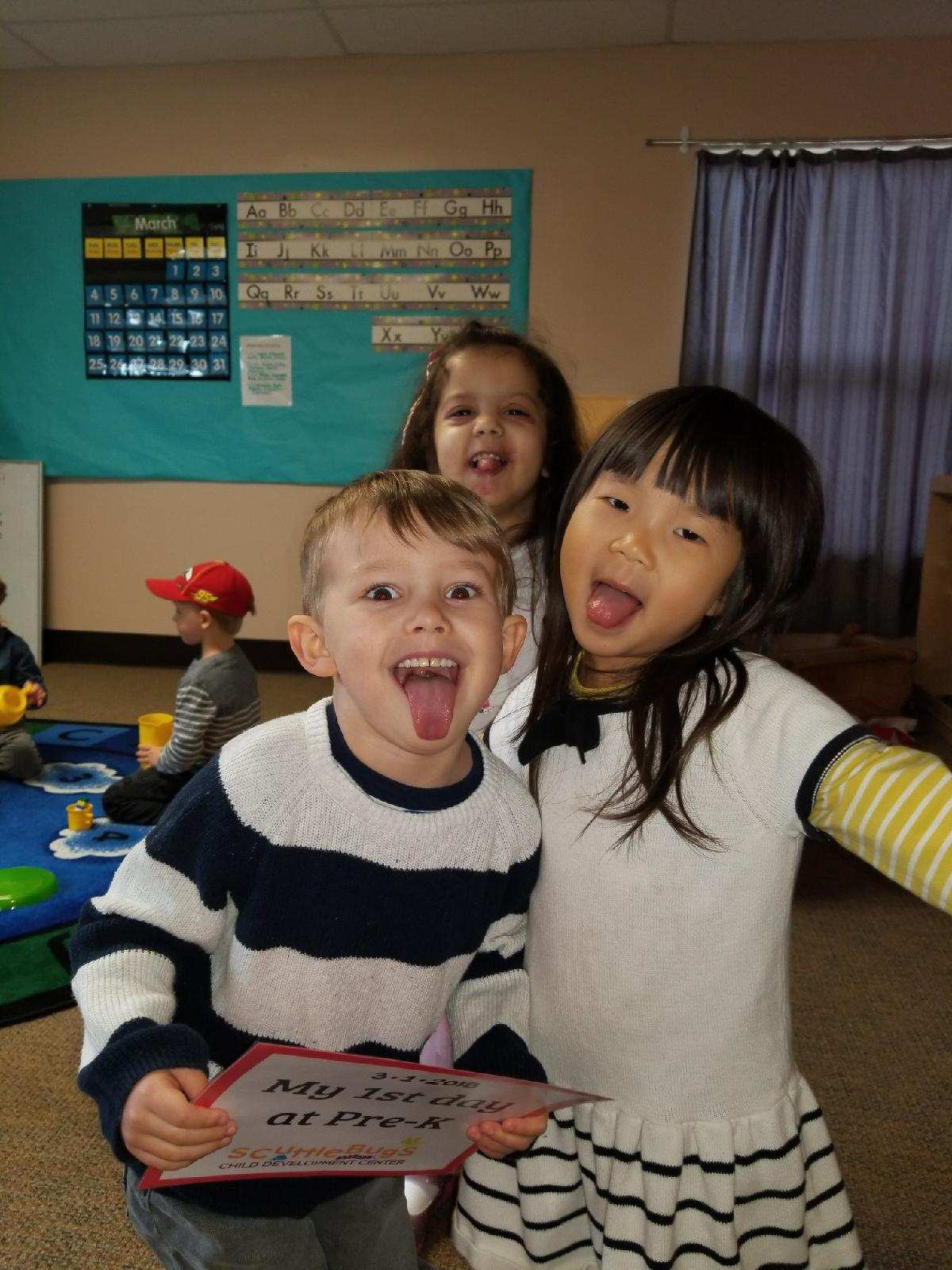
These days we understand that ECE is “approached from two differing viewpoints: one focused on the benefits of play for developmental learning and one focused on the benefits of play for academic learning“ (Source).
This paper by S. Farquhar & E.J. White, while somewhat of a drier read, is quite informative (if you can wade through all the formal terminology). “Current conceptual delineations of pedagogy also address the wider scope of educational questions such as:
What does it mean to teach?
What does it mean to learn?
What does it mean to be human?
What and whose knowledge is important?
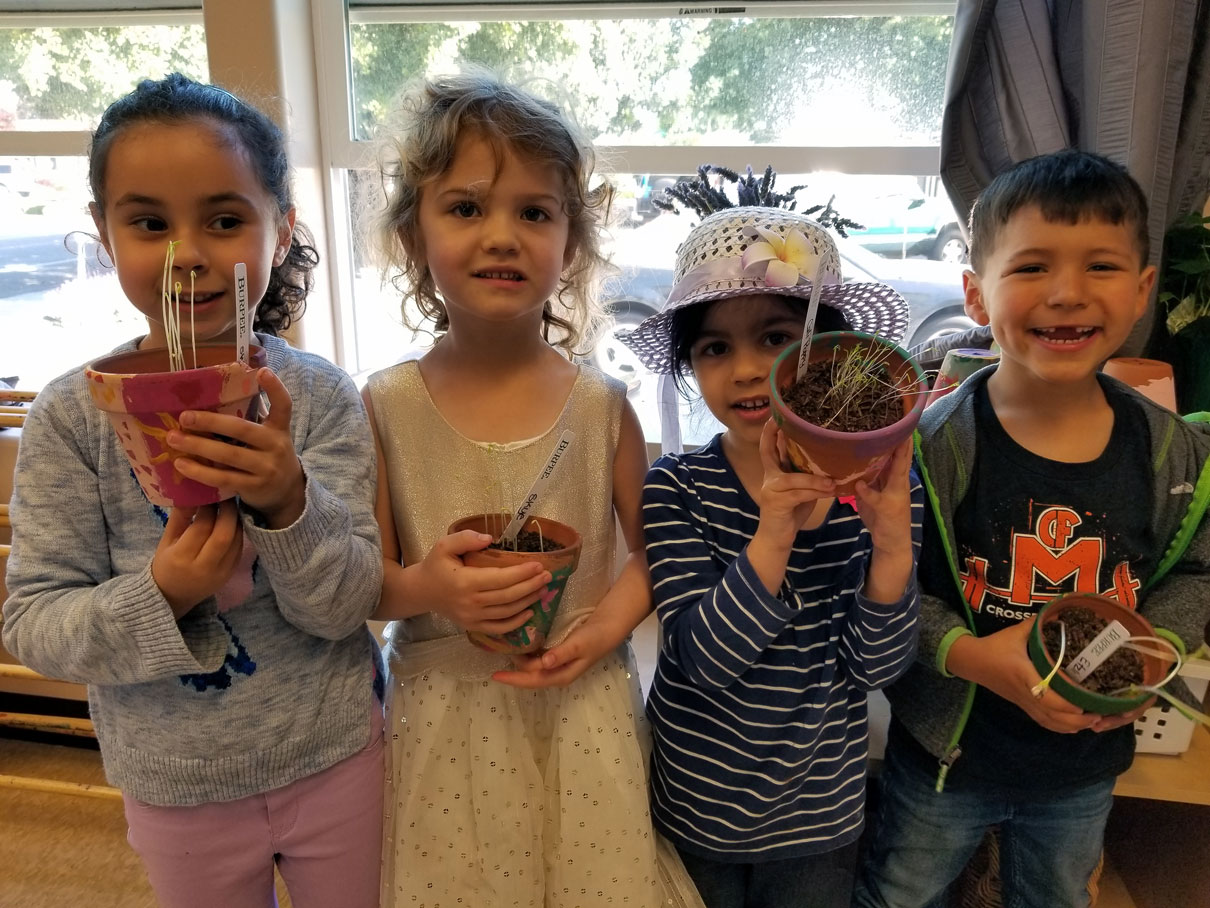
Pedagogy, then, makes vital connections between teaching, learning, knowledge, society and politics and generally involves a vision about society, people and knowledge.”
As a mom of two boys who both graduated from ScuttleBugs and are now almost 8 (2nd) and 12(6th) grade, I’m coming at this from a few different angles especially as “Pedagogy and curricula have changed too, most recently in response to the Common Core State Standards Initiative’s kindergarten guidelines.” (Source)
Theory
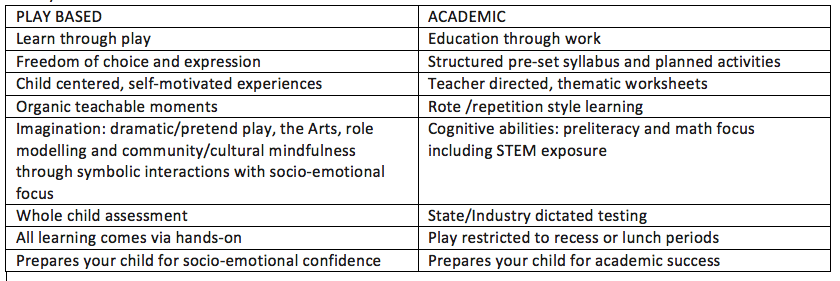

I remember a parent and friend who experienced a handful of programs. They came to us from a nearby daycare. Their son attended ScuttleBugs for a few years then they decided to enroll him in a private academic school as he neared Kindergarten entry. They returned to us shortly thereafter reporting “they’re creating little automatons!”. The real focus in the preschool years should not just be on numbers, vocabulary and reading, but on talking and listening - interaction. Get to know the personality of each child – they’re unique and have strengths/skills a-plenty. “What matters is that your child is learning from adults who engage and stimulate intellectual curiosity while imparting social skills.“ (Source)

Environment
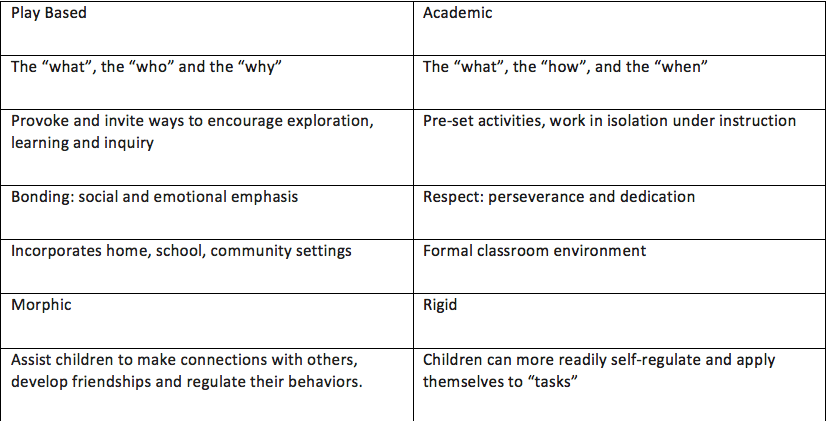

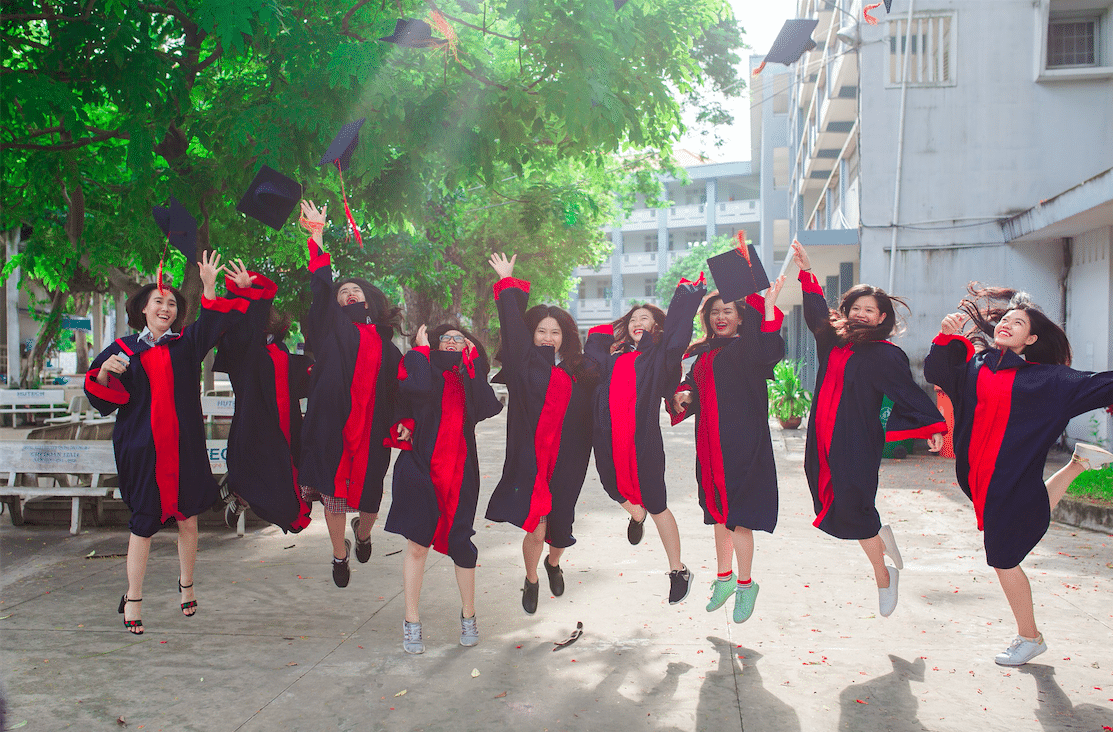
If you know me, or have read any other works by me you’ll know that I am constantly saying “children are capable of far more than we give them credit for” – although I’m sure I’m not the first to make this statement! “The more I observe young children in action, the more faith I have that they are capable and powerful. But our expectations are often mismatched: We ask too much of young children pragmatically, but too little of them cognitively.” (Source)
Regardless of which ECE approach you have a preference for “children need secure, warm and trusting relationships so they are confidently supported in their explorations and risk taking.” (Source)

